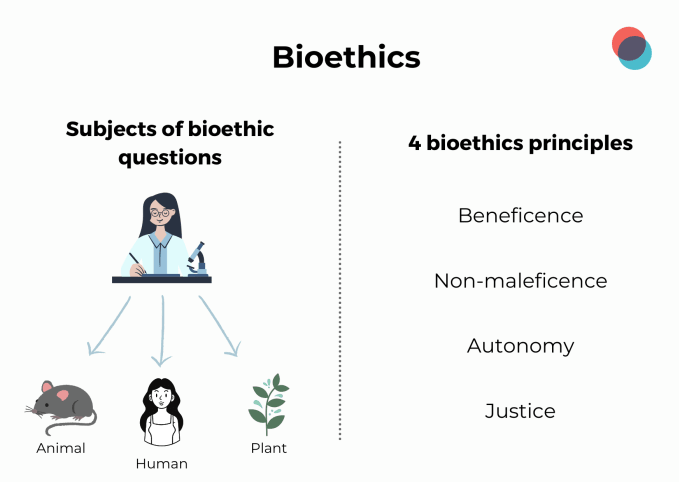Bioethics at the heart of the scientific and medical society
June 16th, 2022, by Labtoo's team
What is bioethics?
The definition of bioethics is the study of moral aspects of biological, medical, and technological studies. Although it is still argued upon amongst scientists and in constant evolution, here is our best shot at explaining it.
Since the creation of the term “bioethics” in 1927 and the rising of concerns in bioethics in the 70’s, new medicines, procedures, and discoveries used to engineer plants, animals and humans are being put under ethical questions.

Bioethical questions are not only based on sciences, but also on medicine, public health, law, philosophy, or theology.
Those bioethics questions are asked throughout the entire scientific process. They are not only reserved for the scientific world but they can also be explored on the public scene, as a lot of debate has taken place publicly on certain bioethical questions.
Bioethics rest on 4 principles:
Beneficence: there is an obligation for the physician to act for the benefit of the patient, by obeying moral rules to always be of help to all patients, regardless of the condition.
Non-maleficence: similar to beneficence, this principle forbids the physician to harm the patient. The physician should always manage to treat the patient so that the burdens are overweighted by the benefits.
Autonomy: this principle applies to patients that are capable of making a decision for themselves. In this case, physicians have to disclose all the necessary information required for the patient to make their decisions. As soon as the patient is diagnosed as incapable of autonomy, it is the physician’s duty to protect the patient’s integrity.
Justice: with this principle, it is implied that all healthcare resources must be allocated in a fair, equitable, and appropriate manner. The challenge is to figure out how to balance resource distribution.
Why is it important for biotechnologies?
Biotechnologies are in constant evolution, defining new rules of what is technically possible and what is still out of reach. Gene sequencing and genetic manipulation techniques, for instance, have raised questions about who we are and what we could become.
Bioethics, likewise, are in constant evolution too. Indeed, biotechnologies have often been the reason for the consideration of bioethical issues.
It is essential for scientists to consider their research project from an ethical point of view, and always protect the integrity of the subjects. Without this moral compass, the door is open to unethical uses and the results can be disastrous.